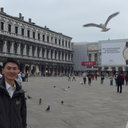Selective anti-proliferation of HER2-positive breast cancer cells by anthocyanins identified by high-throughput screening.
Palabras clave
Abstracto
Overexpressed Human epidermal growth factor receptor 2 (HER2) drives the biology of 20% breast cancer and is a prediction of a poor prognosis for patients. HER2-targeted therapies significantly improve outcomes for HER2-positive patients. Traditional Chinese herbs/medicines have been used to treat breast cancer patients including HER2-positive patients in Asia for decades. Although the traditional medicines demonstrate efficacy in clinics for HER2-positive patients, the mechanism is largely unknown. In this article, we screened a 10,000 natural product library in 6 different cell lines representing breast cancer, and assessed the ability of each drug to cause cytotoxicity through a high-throughput screening approach. We have identified eight natural compounds that selectively inhibit the proliferation of HER2-positive cells. Two of the hit compounds, peonidin-3-glucoside and cyaniding-3-glucoside, are both extracts from black rice. They inhibit the phospho-HER2 and phospho-AKT and were confirmed to induce HER2-psotive breast cancer cells apoptosis both in vitro and in vivo. Peonidin-3-glucoside and cyaniding-3-glucoside treatments significantly reduced the tumor size and volume in vivo compared to the control group. There is no significant difference of antitumorgenic effects between peonidin-3-glucoside and cyaniding-3-glucoside treatments.




